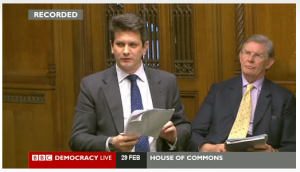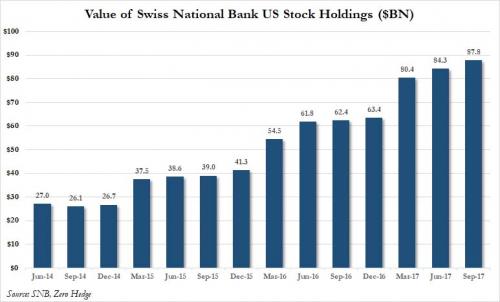Earlier today Conservative Steve Baker MP put forward a Private Member’s Bill, the Financial Institutions (Reform) Bill, which outlines a programme of radical reforms to the banking system and calls for an end to state meddling in banking. Steve is co-founder of the Cobden Centre, and has been MP for Wycombe since May 2010.
The underlying principle of his Bill is to minimize moral hazards within banking, by making those who make or preside over risk-taking as liable as possible for the consequences of that risk-taking. Since financial institutions often circumvent rules, the Bill also includes mutually reinforcing measures that minimize scope for evasion.
Within this framework, bankers would be free to do as they wished, but they would bear the consequences of their own actions.
Thus, Steve’s Bill addresses the rampant moral hazard problems within the modern banking system, and this is the central issue in putting the banking system back on its feet and restoring its integrity. Indeed, his proposals provide nothing less than a free-market solution to the current banking crisis
I would therefore ask all supporters of free markets to promote this Bill and to push for similar measures in other countries.
One key provision of the Bill is to make bank directors strictly liable for bank losses and require them to post personal bonds as additional bank capital. These measures reaffirm unlimited personal liability for bank directors, and will rule out all-too-familiar “It wasn’t my fault” excuses on their part.
The Bill also calls for bonus payments to be deferred for five years, and for the bonus pool to be first in line to cover any reported bank losses. Any reported losses would be covered first out of the bonus pool and then out of directors’ personal bonds before hitting shareholders.
These measures would provide strong incentives for key bank decision-makers to ensure responsible risk-taking, as their own wealth would now be very much at risk.
Amongst other measures, the Bill:
- Proposes a tough bank solvency standard, and would require any insolvent bank to be automatically put into receivership;
- Calls for the Government to propose a fast-track receivership regime for insolvent banks and to produce a plan and associated timetable to end all state involvement in the banking system;
- Calls for accounts to be prepared using the old UK GAAP governed by Companies Act legislation, as proposed in Steve’s previous (2011) Private Member’s Bill, the Financial Services (Regulation of Derivatives) Bill. This would put an end to the various accounting shenanigans associated with IFRS accounting standards; and
- Calls for the establishment of a Financial Crimes Investigation Unit to investigate possible crimes committed by senior bankers: this Unit would investigate all banks that have failed or received public assistance since 2007 and would replace the Financial Services Authority, which has proven to be utterly useless.
Further details of the Bill can be found on Steve’s website:
- Liability of bankers and treatment of bonuses – 27/02/2012
- Use of personal bonds and bonus pool to make good bank losses – 28/02/2012




Congratulations on this bill. Hope the Government will take it up.
I read this post initially with some enthusiasm, but which rapidly dissipated as I went through the details.
Quite frankly, the single major action which would do most to correct the present – and prevent future – financial crises is nowhere to be seen: namely, the abolishment of the Bank of England, State-controlled printing presses, the legal tender laws, and our fiat currency.
While all of the measures in Baker’s bill are positive, I doubt that they would make a significant difference. A chance for some true back-bench radicalism lost…
Finally, thought Baker’s comment on his own site was quite telling: “I was delighted today that my ten-minute rule Bill was introduced without opposition. This late in the Parliament, the Bill itself is extremely unlikely to make further progress but I was glad to put the following on the record”. If true, what was the point of submitting this bill, if not simple to grandstand…?
Thank goodness that that there is at last someone to speak up and say what I think the majority of the population feel about bankers and the banking situation. I do hope that his Bill gets a good hearing and is succesful so that the tax payer no longer has to pick up the bill for those greedy members of the banking community e.g. Fred Goodwin